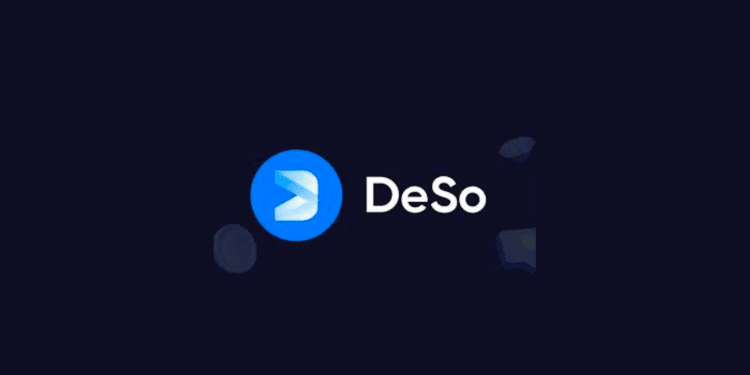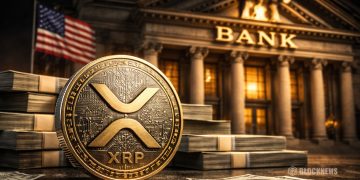- The Decentralized Social Network (DeSo) vertically disintegrates social media platforms and content ownership.
- DeSo to upgrade DEX with a decentralized order book and integrate an on-chain social layer.
DeSo announced it would be upgrading its DEX to allow users to trade any asset, whether it’s crypto or non-crypto, in a fully decentralized manner while maintaining complete anonymity.
This upgrade will incorporate a decentralized order book to facilitate trades within the DEX and integrate an on-chain social layer, enabling user wallet addresses to interact beyond simply transacting.
Upgrade Details in Context
Traditionally, order books are managed by centralized entities, leaving room for potential manipulation and censorship. However, through a decentralized order book, all buy and sell orders are matched by users individually, and trades are executed on the blockchain directly, ensuring transparency, immutability, and trust for all participants.
Moreover, integrating an on-chain social layer allows users to interact, share insights, and collaborate within the decentralized ecosystem. It fosters a community-driven environment where traders can discuss strategies, discover new opportunities, and learn from one another.
DeSo Explained
DeSo, known as the Decentralized Social Network, is disrupting the monopolization of social networks by providing a public Layer 1 blockchain infrastructure for decentralized Web3 social media applications. Unlike traditional blockchain technology that prioritizes transaction scalability in financial ecosystems, DeSo focuses on scaling the number of user posts per second, making it a unique platform in the blockchain space.
DeSo Tokenomics
At the heart of DeSo is its native coin, $DESO, also called Creator Coins. These coins are attached to each user profile within the Decentralized Social Network, forming a distinct asset class. With a limited total supply of nearly 11 million tokens, $DESO is a deflationary cryptocurrency with inherent scarcity.
When users create a profile on DeSo, they are assigned their own $DESO Creator Coins. A Creator Coin’s value is relative to its respective user’s reputation. This means the more popular a user’s content and profile become, the more valuable their Creator Coins are. This creates a clout-driven economy within the platform.
Users can buy and sell Creator Coins of other users, while creators can grant certain privileges to holders of their coins. For instance, popular users can offer access to exclusive content or limited social non-fungible tokens (NFTs) to those holding a specific amount of their Creator Coins.
DeSo Governance
DeSo’s open-source nature ensures that participation is accessible to anyone willing to create a user profile. The governance of DeSo is primarily based on content moderation. In contrast to traditional Web2 social media platforms, where censorship of user-generated content is prevalent, DeSo takes a transparent approach.
All content within the DeSo ecosystem is openly visible to the network and nodes operating on the blockchain. This means that if any malicious, harmful, or illegal content is created and circulated, it can be detected by the network. Nodes on DeSo have the authority to moderate such content and even take legal action against the creators.
The circulation and moderation of $DESO Creator Coins also act as a deterrent for generating harmful content, as it can negatively impact a user’s reputation and subsequently affect the value of the unique $DESO tokens associated with their profile.
DeSo’s decentralized and transparent model empowers users to have greater control over their content and reputation. It fosters a more accountable and community-driven social media ecosystem where participants can actively trade Creator Coins and benefit from their accumulated value based on popularity.
Why DeSo Is Using a Decentralized Order Book
Most Web3 DEX protocols utilize an Automated Market Maker (AMM) for executing user trades where buy and sell orders are matched automatically through a liquidity pool. However, AMMs have limited order control as users rely on intermediary liquidity pools for trade executions, often with specific limit orders.
AMMs also have a greater chance of perpetuating impertinent loss where the value of a staked asset diverges from the price of the same asset held in a wallet; this can occur through constant pool rebalancing. Furthermore, AMMs run the risk of slippage, where the executed trade price of an asset deviates from its expected price due to a limited depth of liquidity in the pool.
On the other hand, order books are commonly used in TradFi. Most crypto projects tend to stay away from them because transaction records in an order book are not immutable; a central authority controls the order book itself, and although there are no specific limit orders, matching buy and sell orders through an order book mechanism is time-consuming.
DeSo utilizing a decentralized order book mitigates these challenges because decentralized order books enable greater price discovery, give more control to users when executing trades, and are still completely transparent as all executed trade records are stored on the blockchain.
Decentralized order books enhance security by removing the need to trust a centralized entity with user funds. Participants retain control of their assets in their own wallets, reducing the risk of hacks or theft associated with centralized exchanges.
Decentralized order books prioritize user privacy and anonymity. Participants can trade without revealing personal information, as transactions are pseudonymous and can be traced on the blockchain without revealing true identities. Regular order books often require users to provide personal information, compromising privacy to varying degrees.
Furthermore, decentralized order books offer resistance to censorship. CEXs and HEXs that use regular order books or AMMs can impose restrictions or limitations on trading, whereas decentralized order books operate based on predefined conditions set by smart contracts. As long as the conditions are met, transactions can be executed without interference.
Conclusion
DeSo’s announcement of upgrading its decentralized exchange (DEX) to incorporate a decentralized order book brings significant benefits to the platform and its users. By leveraging a decentralized order book, DeSo ensures transparency, immutability, and trust in trade execution, eliminating potential manipulation and censorship that can occur with centralized entities.
Integrating an on-chain social layer further enhances user interaction and collaboration within the decentralized ecosystem, fostering a community-driven environment. DeSo’s innovative approach to decentralized social media, tokenomics, governance, and the use of a decentralized order book positions it as a unique and promising platform in the blockchain space.














